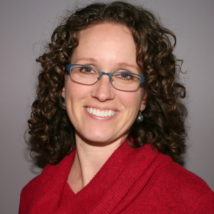
Alison Pearce Stevens is a former duck wrangler, beekeeper and forever science geek who specializes in writing about science and nature for kids. She lives in the Midwest with her husband, their two kids and a small menagerie of cuddly (and not-so cuddly) critters. She writes for Science News Explores, Highlights, ASK (Arts and Sciences for Kids) magazine and National Geographic Kids' Books. Her next book, Rhinos in Nebraska, comes out in 2021. She is also an avid gardener who can often be found in her yard, checking out the critters that call it home.

All Stories by Alison Pearce Stevens
-
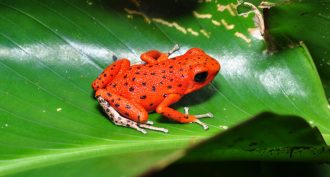 Animals
AnimalsCool Jobs: Finding new uses for nature’s poisons
Scientists study toxins and other natural compounds in search of alternatives to ineffective antibiotics and dangerous pesticides.
-
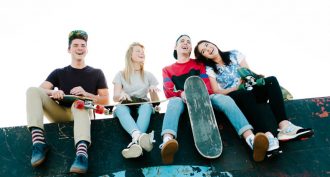 Health & Medicine
Health & MedicineTeen friendships may make for healthier adults
Scientists find that strong teen friendships — and a tendency to follow the crowd — may lead to better health in their 20s.
-
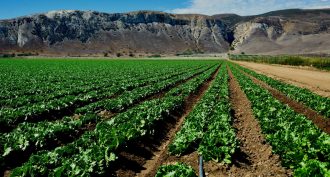 Agriculture
Agriculture‘Wildlife-free’ farms don’t make salads safer
Scientists find that removing wildlife from farms did not make raw vegetables safer to eat.
-
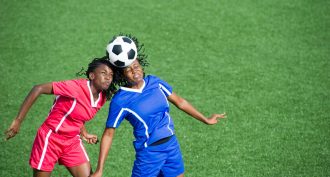 Brain
BrainSoccer: Watch out for collisions!
Scientists discover that concussions among high school soccer players stem more from aggressive contact between players than from heading the ball.
-
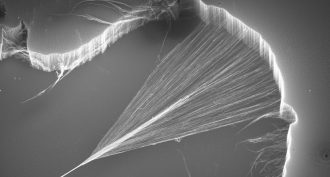 Tech
TechCool Jobs: Big future for super small science
Scientists using nanotechnology grow super-small but very useful tubes with walls no more than a few carbon atoms thick. Find out why as we meet three scientists behind this huge new movement in nanoscience.
-
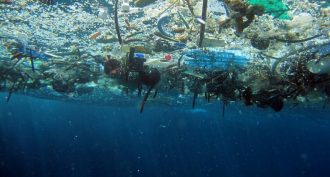 Environment
EnvironmentTiny plastic, big problem
Unsightly plastic bottles, bags and other trash give just a hint of the largely unseen problem of plastic pollution. Scientists have found tiny bits of it throughout the ocean. The bad news: Sea life can’t tell the difference between plastic and food.
-
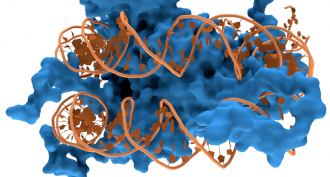 Life
LifeHow DNA is like a yo-yo
When not in use, DNA coils tightly. But it must uncoil for the cell to ‘read’ its genes. Physical forces affect how easily that happens, new data show.
-
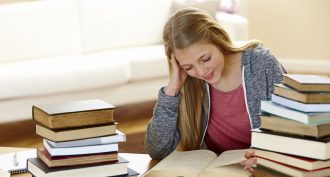 Health & Medicine
Health & MedicineStress for success
Stress and anxiety can lead to serious mental and behavioral problems. Identifying stressors can help people cope with anxiety. Even better, viewing stress as a strength can tone down anxious feelings and boost productivity.
-
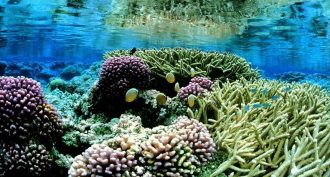 Environment
EnvironmentCorals dine on microplastics
Plastic in the ocean is a growing problem. New research finds that corals may eat tiny bits of plastic, prompting new concerns about the health of living reefs.
-
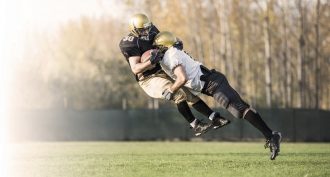 Brain
BrainA new ‘spin’ on concussions
Scientists have suspected that rotational forces in the brain may underlie concussions. A new study used athletic mouthguards containing sensors. Data on head movements during collisions suggest that a twisting of the brain may underlie mild brain injuries, including concussion.
-
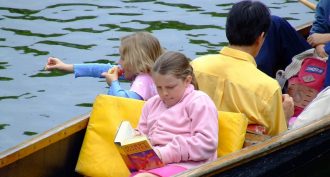 Brain
BrainHarry Potter reveals secrets of the brain
Figuring out how the brain makes sense of what we read isn’t easy. So scientists enlisted the magical world of Harry Potter. It allowed experts to predict with great accuracy which brain areas would be active in a given part of the story.
-
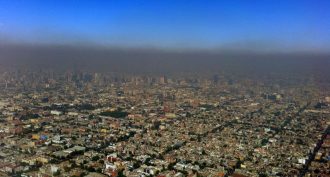 Environment
EnvironmentNano air pollutants strike a blow to the brain
Most people think that air pollution poses the biggest risk to our lungs. In fact, pollution hits the brain too, sometimes by traveling a direct route — through our noses. These tiny pollutants can harm IQ and more.